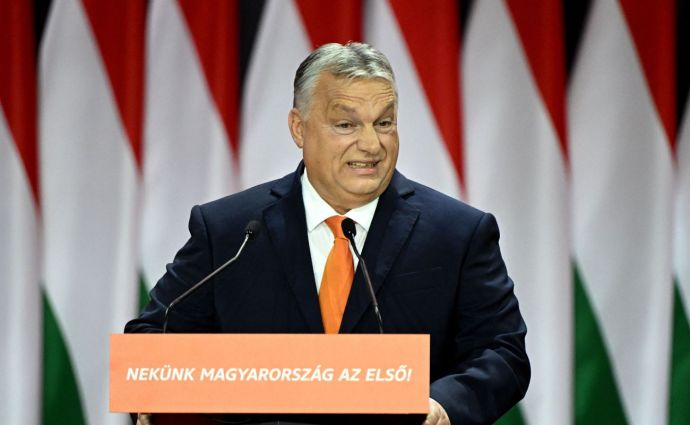Hungarian Prime Minister Viktor Orbán is refusing to approve the extension of EU sanctions against Russia, which complicates the process of allocating loans to Ukraine using frozen Russian assets, in an effort to help U.S. presidential candidate Donald Trump.
This was reported by Politico, citing informed sources.
Recently, Hungary decided not to approve an important EU decision related to the U.S. involvement in a G7 loan to Ukraine until after the U.S. presidential election. This loan would be repaid using frozen Russian assets.
According to the report, Washington is pushing for the EU to extend the sanctions’ duration to at least 36 months. Under the current rules, EU sanctions must be renewed every six months.
While all other EU leaders support extending the sanctions period as requested by the U.S., Orbán is resisting. EU rules require unanimous approval from all 27 member states for any changes to the sanctions regime.
“If we don’t resolve this by extending the sanctions, it will cost the EU—including Hungary—more money,” noted an anonymous EU diplomat.
For European countries, including Hungary, the costs would be higher without U.S. involvement. However, according to the report, Orbán sees this as a small price to pay, as it would help him “buy goodwill” with the Republican candidate.
“They (Hungary) don’t care if Europe has to pay more. It’s about helping Trump,” said another EU diplomat.
If Brussels and Washington jointly approve the loan, the Republican candidate could be linked to it for a long time. However, if the funds are approved without U.S. participation, Trump would not have such a commitment, the report says.
The plan involves a $50 billion loan for Ukraine, agreed upon by G7 leaders, which would be repaid using profits from the frozen Russian assets—essentially making it a loan that Ukraine would not have to repay.
Under the plan, the EU would contribute €35 billion, with the rest coming from other G7 countries. The U.S. is keen for the EU to change the sanctions renewal period from the current six months to a longer term to ensure that Russian assets remain frozen. Hungary’s blockade concerns this decision within the EU, not the “European” portion of the loan itself.
Read also: Biden: U.S. ready for talks with Russia, China, North Korea to reduce nuclear threat













